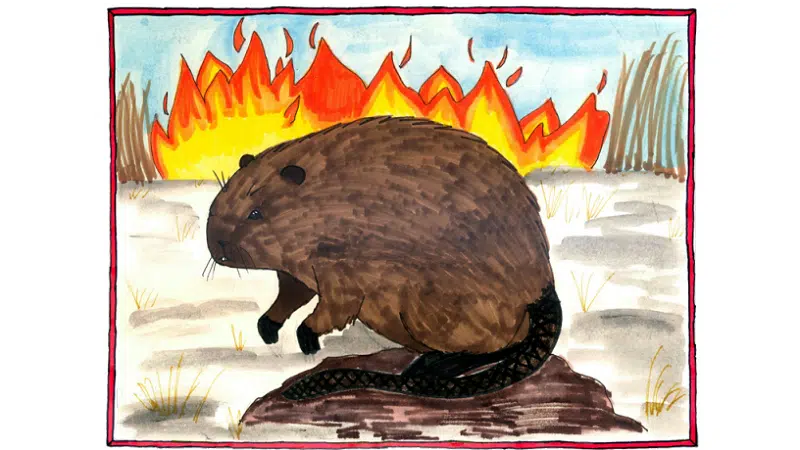
Teacher and students from Cumberland House get children’s book published
Nearly three years of research from a Cumberland House teacher has paid off with a published educational children’s book.
Muskrats and Fire, written by Renee Carriere and illustrated by her daughter Michela and her students at Charlebois Community School, takes a look at why the muskrats in the Cumberland House area are gone and how Indigenous and Western sciences can work together.
Carriere has been a teacher and researcher in Cumberland House for over three years. Her work started when students asked her questions regarding the muskrats.


